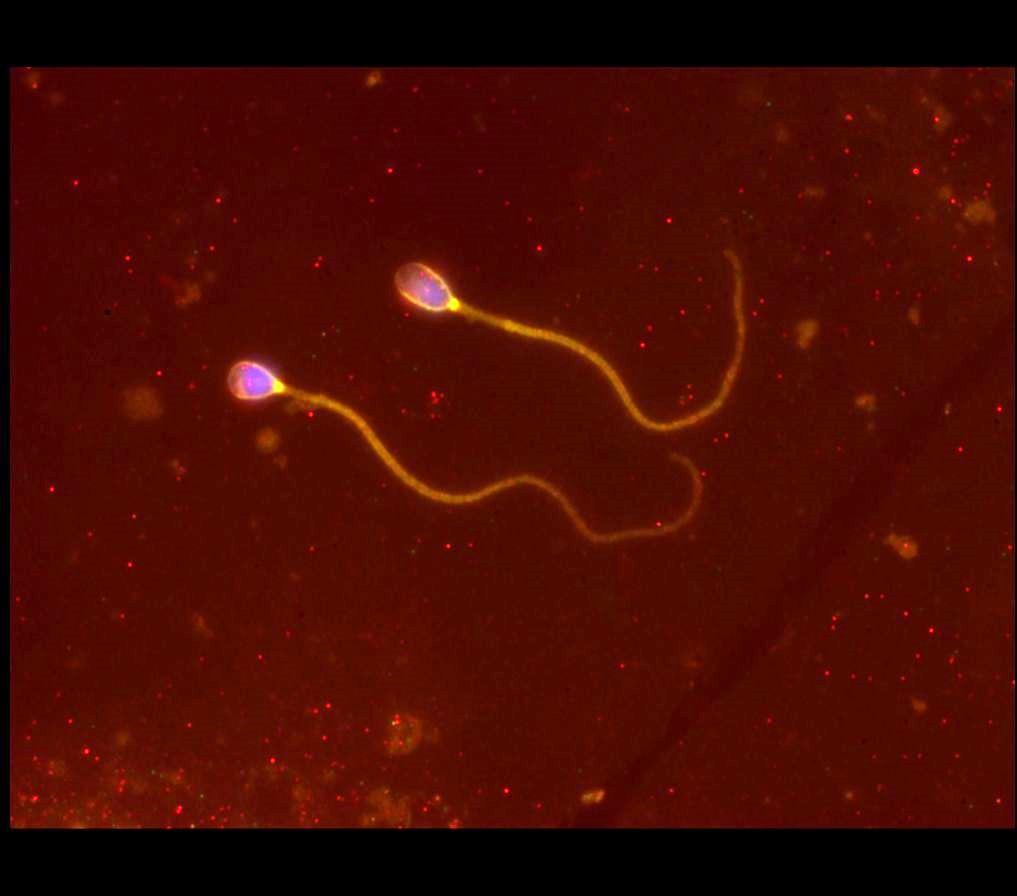Low Sperm Count Endangers Humanity's Future Worldwide
Low-T is a big deal.

Credit: Vasin KS, Wikimedia Commons.
An international team of researchers led by Hagai Levine of Hebrew University and Shanna Swan of the Icahn School of Medicine have released a study based on meta-analysis to demonstrate declining sperm counts among men from South and Central America, Asia, and Africa.
The study also shows that a decline in sperm counts in North America, Europe, and Australia— first reported by this team five years ago—has continued and even worsened since 2000.
Sperm count is not merely an indicator of male fertility: it also is an indicator of men's health, with low levels being associated with increased risk of chronic disease, testicular cancer, and a decreased lifespan. The decline in sperm count, according to the authors, is a crisis resulting from the modern environment and lifestyle which may have implications for the survival of the human species.
This latest analysis is found in the journal Human Reproduction Update. Incorporating data from 53 countries, the study includes an additional seven years of data collection (2011-2018) and focuses on sperm count trends among men in regions not reviewed previously, specifically South America, Asia, and Africa.
For the first time, the study shows that men in the latter regions share the significant decline in total sperm counts (TSC) and sperm concentration (SC) seen previously in North America, Europe and Australia. The study also shows that the decline in TSC and SC has accelerated since 2000 globally.
“Overall, we’re seeing a significant worldwide decline in sperm counts of over 50 percent in the past 46 years, a decline that has accelerated in recent years,” Levine summarized in the study.
The study does not examine the causes of sperm count declines, but Levine pointed to other research on disturbances in the development of the fetal reproductive tract are linked to lifetime impairment of fertility and other markers of reproductive dysfunction.
Levine also explained that “lifestyle choices and chemicals in the environment are adversely affecting this fetal development.”
“Our findings serve as a canary in a coal mine. We have a serious problem on our hands that, if not mitigated, could threaten mankind’s survival. We urgently call for global action to promoted healthier environments for all species and reduce exposures and behaviors that threaten our reproductive health," Levine said while speaking to the urgency of the crisis.
Low testosterone in men is manifested inter alia with reduced sex drive and erectile function, as well as obesity and depression, as well as other symptoms including effects on cholesterol metabolism.
Martin Barillas is the author of Shaken Earth, available at Amazon.